This site contains affiliate links. As an Amazon Associate, I earn a commission from qualifying purchases at no extra cost to you. Full Disclosure Here.
If you’re new to firearms, you may not be sure what type of gun to get. Even if you’ve ruled out handguns altogether, you still might not be sure if a rifle or shotgun is better.
Unfortunately, it’s not as easy as just saying that one is better than the other in all situations. There’s a reason that they both exist, after all.
Fortunately, we’re here to help. In this guide, we’ll go over the basics of both rifles and shotguns and what makes them similar and different. By the time we’re done, you should know everything you need to decide which of these long guns is right for you.
How Does a Rifle Work?
There are a couple of major things that differentiate a rifle from a shotgun.
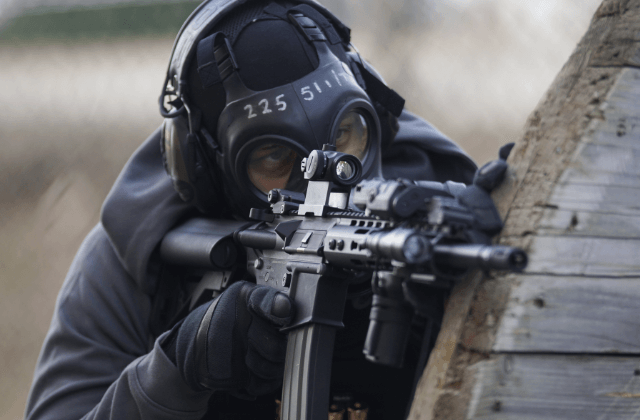
First, rifles generally shoot only a single projectile, the bullet. There are exceptions, like snake shots, but these are rare and only used for small-pest control or as a novelty.
The main thing that differentiates a rifle from a shotgun is that a rifle has rifling on the barrel (as do handguns). “Rifling” refers to spiral grooves that run the length of the bore (the inside of the rifle’s barrel). Rifling causes a bullet to spin as it travels through the barrel, making it go faster and improving its accuracy and range.
Rifle cartridges operate at higher pressures, so they tend to have thicker barrels than shotguns.
Rifling and higher pressures make rifles great for longer-range shooting, including hunting and target shooting. There are rifles for close quarters as well.
The same properties that make rifles good for long-range shooting also make them well-suited for hunting and home defense. Rifling and high pressure mean higher speed, which is great for penetrating flesh. Once the bullet has entered the flesh, it begins to expand, causing more internal damage.
Rifles are very diverse, though. They are available in a large range of calibers that are suitable for different things, including hunting all kinds of game, shooting targets at all ranges, and home and property defense, so you’ll need to make sure you’re choosing the right rifle for your purposes.
Once you have the right rifle, you’ll also need to choose the right ammunition.
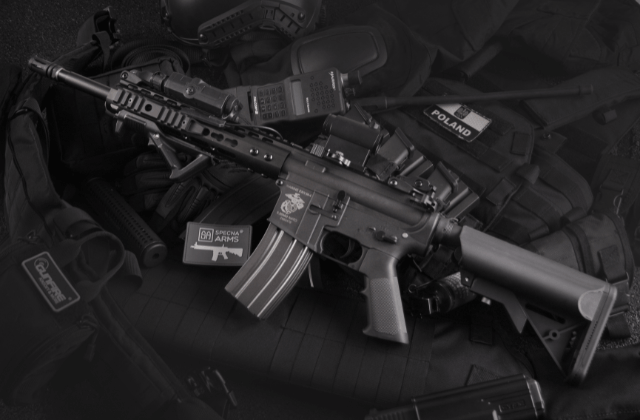
You’ll want a hollow point or soft point round for hunting and defense. Hollow points have a divoted tip which allows the bullet to expand when it hits the target, causing more damage. However, this comes at the expense of the round’s trajectory.
Soft points are shaped like hollow points but with plastic filling the divot. This helps give a flatter trajectory while also allowing for reliable expansion, though not as reliable as with a hollow point.
You’ll want a full metal jacket (FMJ) round for target shooting. These rounds have a soft (usually lead) core and a harder metal case, which leads to a flat trajectory and little expansion upon hitting the target.
You don’t want to use FMJ rounds for hunting or defense because overpenetration can occur. Overpenetration is bad because it does less damage to the target and also because it means the bullet can harm people and animals behind the target. In extreme cases, the bullet may even continue through objects behind the target and harm people and animals behind the object.
How Does a Shotgun Work?
On the other hand, shotguns generally have smooth bores, which means they don’t have rifling. This is because shotguns, as the name suggests, are primarily used to shoot shot.
For the uninitiated, shot refers to the little lead or steel balls found in a plastic shotgun shell. When a shotgun is fired, the plastic cartridge comes open, allowing all that shot to be fired out of the barrel.
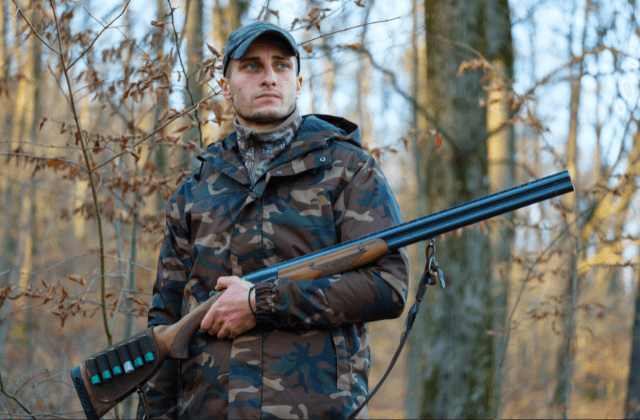
From there, the shot spreads out, so projectiles hit over a larger area, called the spread pattern, instead of a single point like a rifle. That makes rifles better for shooting quickly moving targets, which is why they’re the more popular choice for hunting birds and are also common for rabbits. By extension, this is also why shotguns are used for shooting clays (those flying targets that you might have seen on tv or in movies).
The flip side of this is that shotguns aren’t nearly as effective as rifles for extended ranges. Of course, it depends on a variety of factors, but generally, shotguns only have an effective range within 100 yards, usually significantly less.
However, that doesn’t mean shot can’t seriously injure or even kill at further distances, so you should still be very aware of what’s behind your target when using a shotgun.
Most shotguns can also shoot slugs, which are single projectiles made for shotguns. Slugs allow for longer ranges, but the lack of rifling on a shotgun’s barrel means that slugs still aren’t as effective as rifle rounds. Even with a slug, your effective range would lie well within 200 yards and, again, usually less.
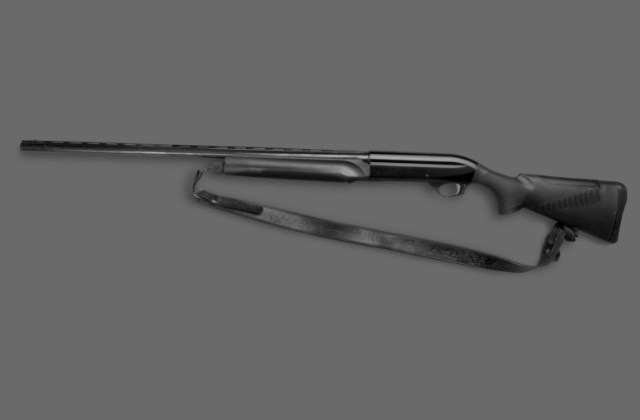
Some shotguns are specially designed to shoot slugs and have rifled barrels, but they still have to be able to chamber shotgun shells to legally be considered shotguns.
Rifling inhibits the spread of shot, which is why most shotguns don’t have it. When rifle shooters want to control the spread pattern, they rely on chokes, devices that go on the muzzle to constrict the shot charge before it leaves the barrel.
Aside from hunting and some types of sport shooting, shotguns are also popular choices for home defense. there is one more type of shotgun available in the market called semi-auto tactical shotgun.
First, because the spread means you don’t have to worry about being as accurate, which is very useful in a stressful situation.
Second, because shot is less likely to over penetrate and go through your target or the walls behind them, where they can harm other people in your home.
Factors to Consider when Purchasing a Rifle or Shotgun
If you’re still unsure if a rifle or shotgun is right for you, here are a few things to consider to help you figure out which one better suits you.
Shooting Ability
If you’re new to shooting, it’s worth considering what your strengths and weaknesses are as of now. For example, a shotgun may be the place to start if you’re worried about your ability to aim. However, shotguns also have significant recoil, so a rifle may be better if you don’t have a lot of upper arm strength.
If you have absolutely no shooting experience, I generally recommend starting with a low recoil rifle round, like .22LR.
Anticipated Shooting Distance
As we’ve already established, rifles are available for a wide variety of ranges, and shotguns are limited to short ranges, even with slugs. So, if you only shoot close range, you can go with either a shotgun or rifle. On the other hand, if you want to be able to shoot longer distances, you’ll need to go with a rifle.
Hunting Locations
If you want to be able to hunt with your new long gun, you’ll need to consider your location. Since shotguns are built for short distances, you’ll need a rifle to shoot mountain goats from one side of the mountain to the next.
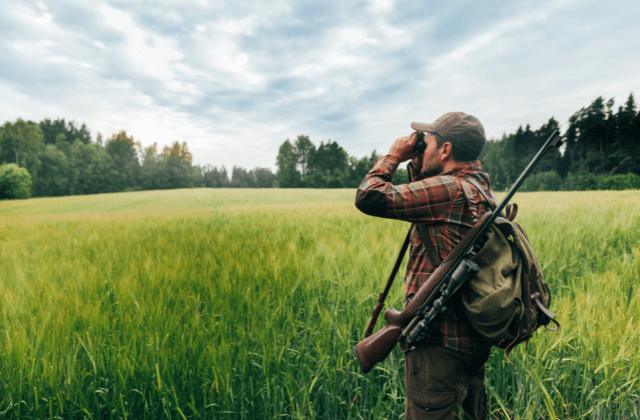
On the other hand, shotguns are better for moving targets, so if you plan on hunting waterfowl, this will suit you better.
Of course, there are plenty of things that you can hunt with both, like deer, sheep, elk, and bear. Just make sure you’re getting the proper gauge.
Caliber/Gauge
The last thing to consider is what caliber/gauge you need for the type of shooting you’re doing. For example, if you’re just learning or teaching a new shooter, then a low-recoil caliber, like .22LR for rifles or .410 for shotguns, would be a good idea.
Hunters will have specific requirements based on their game of choice and the distances they’ll be shooting at, while target shooters will be focused more on the rifle’s potential accuracy or the shot load’s size when it comes to something like trap shooting with a shotgun.
FAQs
Per shot, yes. Especially at closer ranges, a 12 gauge shotgun can fire several projectiles at once, making it more powerful. At longer ranges, however, an AR-15 definitely carries more power.
Typically, yes, a 12 gauge shotgun is going to be about twice the volume of an AR-15 or other intermediate-caliber rifle due to the size of the powder charge and the design of the firearm. Larger caliber rifles will eventually start being louder, however.
In general, the M-16 is a more modern firearm and has been around longer, so we have to give it the win here. That said, both are good at different things; for a civilian, the difference will most likely come down to preference.
Rifle vs. Shotgun – Final Verdict
That brings us to a close on rifles vs. shotguns. Hopefully, by now, you have an idea of which one is best for you, or at least feel well-armed (pun intended) with enough information to make a more informed choice.
And remember, there’s no wrong answer here. Like many things in the world of firearms, it’s going to come down to personal preference and your specific situation.
Each type of long gun has its own advantages and disadvantages. A shotgun is typically a little more versatile in terms of projectile choices, but a rifle, particularly an AR-15, offers better utility at longer ranges and more customization options for the owner.
If you’re still unsure which option is better for you, I suggest going to a range that rents out guns and trying each option out yourself. This experience will give you a lot more insight into your personal wants and needs and can help you decide for yourself which one is better for you and your shooting preferences.

